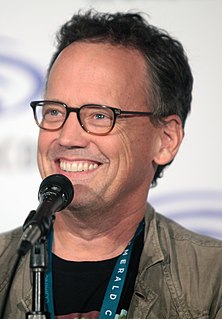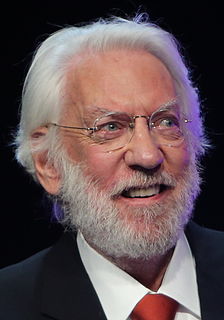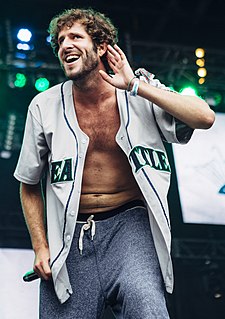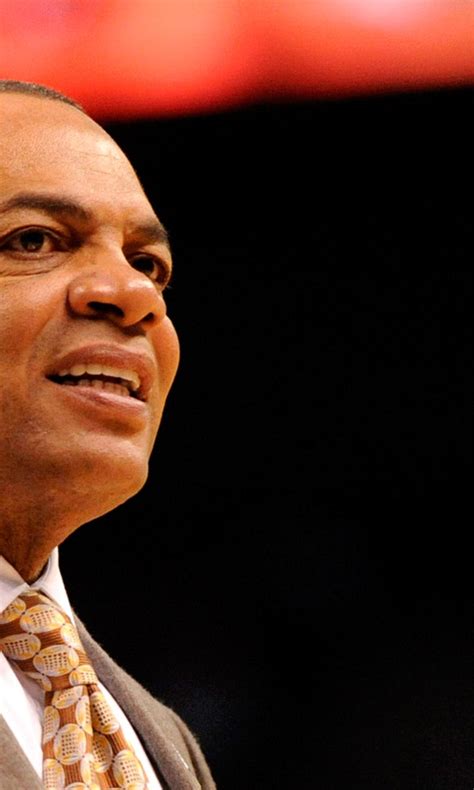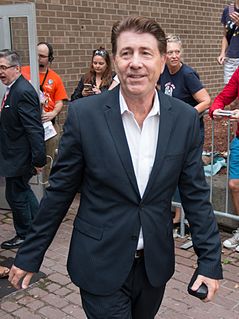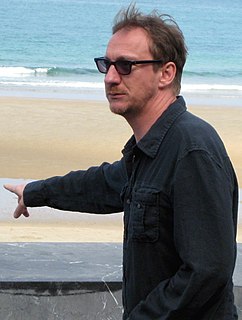A Quote by William H. Macy
When Fargo came out, I hired a publicist for the first time in my life. I thought, if ever I was going to make it, that was then.
Related Quotes
I always used to watch 'The Daily Show,' and there were all these comedic geniuses there. I didn't know if I was going to be hired full time or not. At the beginning, I was sort of hired as a part time, on and off guy. When I first got hired - it was August 2006 - and I was working on and off, and they'd call me whenever.
When I was a child, I thought I was going to be a paleontologist because I loved dinosaurs. I loved monster movies and sci-fi, and then 'Star Wars' came out, and I was completely out of my mind with that, with 'Close Encounters,' and then I thought maybe I was going to go into special effects makeup, which I thought was awesome.
I'm running out of time, and a Western is America's answer to a Greek tragedy, so that's what we did. [Kiefer] hired Brad [Mirman] to write the script and he had the ideas, and then he and I did stuff on the script to make it a little cleaner to ourselves. And then, we played it. We were just actors working together, and our DNA must have informed it somehow. Certainly, we came out of it purified a little bit.
After Blood Simple, everybody thought I was from Texas. After Mississippi Burning, everybody thought I was from Mississippi and uneducated. After Fargo, everybody's going to think I'm from Minnesota, pregnant, and have blonde hair. I don't think you can ever completely transform yourself on film, but if you do your job well, you can make people believe that you're the character you're trying to be.
Our planning system was dynamite when we first put it in. The thinking was fresh; the form mattered little. It was idea oriented. We then hired a head of planning, and he hired two vice presidents, and then he hired a planner; and the books got thicker, and the printing more sophisticated, and the covers got harder, and the drawings got better.
I did always want to write. And then, when I left New York, where I was working very steadily in the theater - I had done three Broadway shows in a row and was a bit burnt out - I moved out to L.A. and I was not working very much. I came in cold and I'd work for a week, but then I'd have a month or two off. I thought, "I'm going to go crazy unless I actually do write." Like a lot of things in life, it was a situation that came about by circumstances.
In the early '90s, I was hired to write educational dramas about HIV and AIDS in the shantytowns. I did that for two and a half years, and then I was hired on other films. When 'Tsotsi' presented itself, I thought, 'This is not a world I grew up in, but I've spent a great deal of time writing about it and researching it in my past.'
I was, like, "Wow, is this ever going to happen again? Am I ever going to work with another bunch of people I get along with this well?" And then, sure enough, Threshold was just a great bunch of people, and I thought, "Hey, I could hang with these people for a long time!" But, unfortunately, it was 13 episodes and we were out of there.
I came home [after funerals] and I thought if I go back to California, where I had a small house, I don't think I'll ever come east again. So I decided to stay and go through the halls and stairways, talk to Gilda Radner, holler, express some of my anger and make sure there were no ghosts in the hallways that I should ever be afraid of.And then I found out - it sounds strange, but I found out she had left me the house. We never talked about her dying and what she was going to leave me or I would ever leave her. We just didn't talk about those things.
I wanted to be seen as a good person, and never wanted to let people down, but I found it hard to handle the fame or adulation. I didn't feel worthy of it. I was ashamed by who I thought I was because I felt partly responsible [for the abuse] and I was never able to enjoy the stuff I should have been able to enjoy. My first thought when I won the Tour was: 'My God, I'm going to be famous', and then I thought, 'He's going to call'. I was always waiting for that phone call. I lived in fear that anyone would ever find out.



